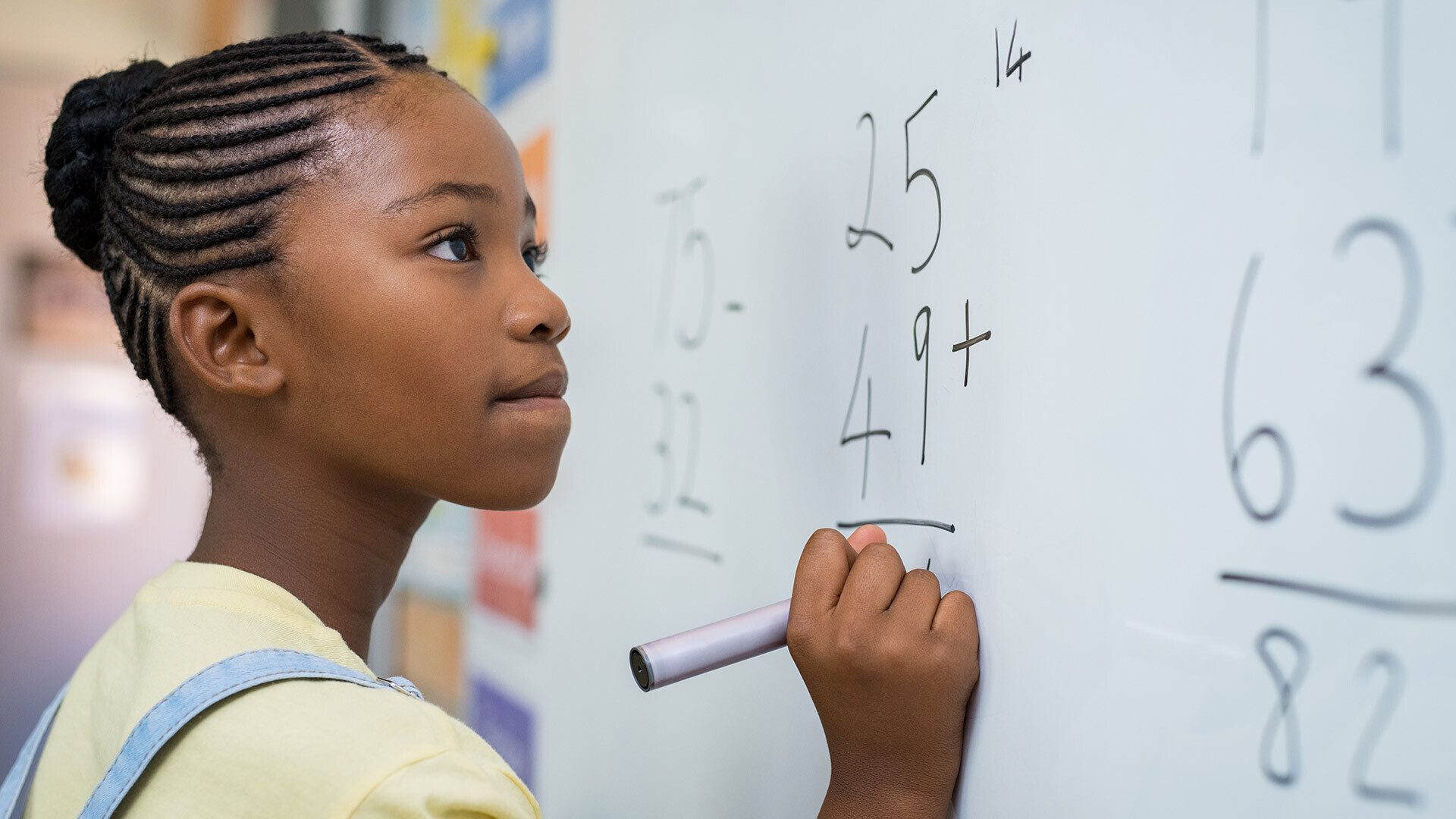- September 14, 2023
- By Maryland Today Staff
In addition to the traditional ingredients of a good lesson plan—a teacher’s preparation, plus an effective school curriculum—support from artificial intelligence is part of the mix in a new project funded by a $1.5 million grant from the National Science Foundation that includes two University of Maryland researchers.
The multi-institutional team is using machine learning (a type of AI in which computerized systems learn much like humans) to assess the quality of mathematics lesson plans in the middle grades. It combines cutting-edge technology with knowledge of effective mathematics education and human feedback, with the aim of helping teachers focus on what they do best.
“A big promise of AI is that it will help relieve teachers from many routine tasks, including lesson planning, so they can spend more time working with students,” said Jing Liu, UMD assistant professor of education policy. Liu is leading a team project funded by the UMD Grand Challenges Grant program on AI in K-12 math teaching.
As online instructional materials proliferate, schools and educators increasingly rely on them for lesson planning, underscoring the need to evaluate their quality. Planning and selecting instructional materials are considered to be among the most complex and important components of mathematics teaching.
“This project will democratize access to quality, inclusive and tailored learning materials that benefit students and support their teachers’ planning processes,” said University of Washington education Professor Min Sun, who is leading the research team. “Beyond scientific contributions, we are addressing equity issues because junior teachers spend more time on lesson planning, as do teachers serving historically marginalized students and communities.”
Previous research has shown that a vast majority of teachers use search engines like Google and platforms like TeachersPayTeachers and Pinterest to source lesson materials. With the rise of advanced chatbots, a recent survey conducted by the Walton Family Foundation shows that 40% of teachers use ChatGPT on a weekly basis for tasks such as lesson planning and building background knowledge for lessons.
This increasing shift toward digital resources is also supported by the burgeoning movement of Open Education Resources (OER) under the Creative Commons License, and many school districts nationwide have chosen OER materials as their primary curricula.
Against this backdrop, the team will assess the quality of online instructional materials intended for middle-grade math, the period when math content starts to become more complex. The team will develop artificial intelligence- and machine learning-powered algorithms, in collaboration with human expert judgment, to check a lesson plan’s content rigor, engagingness of activities and inclusivity for students with language and special education needs.
“Our project combines the collective wisdom of educational experts with the power of machine learning in processing large quantities of data,” said College of Information Studies Assistant Professor Wei Ai, who also has an appointment in UMD’s Institute for Advanced Computer Studies. “As teachers increasingly turn to the web for resources, our research is pivotal in addressing information overload and guiding them toward high-quality lesson plans. The recent rise of large foundational models (such as those used behind ChatGPT) only intensifies the urgency of this initiative, as it enables the machine learning community to develop their models using only the best in educational content.”
In addition to Liu and Ai, Sun’s other co-principal investigators under the NSF grant include researchers from the University of Nebraska-Lincoln and Duquesne University.
This article was based on a news release from the University of Washington.
